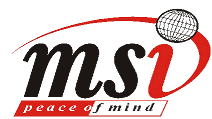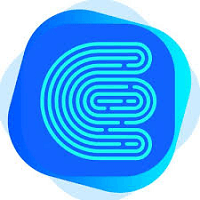Description

OneBook

Vtag
Comprehensive Overview: OneBook vs Vtag
As of my last update, "OneBook" and "Vtag" are not widely recognized products or brands in the global tech market, and there might be limited information available about them. Their details could be specific to a niche industry, a recent launch, or a localized offering. However, I'll provide you with a general approach to understanding such products if they are related to technology, software, or digital solutions, and you can adapt this framework according to the specifics of OneBook and Vtag based on the latest data you have.
a) Primary Functions and Target Markets
OneBook
- Primary Functions:
- Typically, a product named "OneBook" might suggest a comprehensive platform for consolidation, such as a digital notebook, a business management suite, or a content management system. It might include features like data organization, project management, or collaboration tools.
- Target Markets:
- Businesses looking for streamlined management solutions.
- Educational institutions needing centralized resources.
- Professionals or teams seeking efficient collaboration and documentation tools.
Vtag
- Primary Functions:
- A product named "Vtag" could imply a solution related to tagging technologies, possibly involving digital tagging for asset management, augmented reality, or interactive media.
- Target Markets:
- Retail sectors for inventory and asset tracking.
- Media companies looking for innovative engagement methods.
- Enterprises utilizing AR for enhanced customer interactions.
b) Comparison in Terms of Market Share and User Base
-
Market Share: Typically, newer or niche products like these may have smaller, more specialized market shares when compared to established industry leaders. Their market penetration often depends on the effectiveness of addressing specific user needs and the breadth of their target demographics.
-
User Base:
- OneBook might appeal to a broad user base seeking efficiency and organization, ranging from individual users to SMBs and educational sectors.
- Vtag could attract businesses and users involved in industries where digital tagging or AR provides significant benefits, potentially having a narrower but highly engaged user base.
c) Key Differentiating Factors
-
Technology and Innovation:
- OneBook: Might differentiate through its integration capabilities with other business systems, user-friendly interface, and adaptability for various industries.
- Vtag: Likely set apart by its unique use of tagging or augmented reality technologies, offering interactive and innovative engagement experiences.
-
User Experience:
- OneBook: Could focus on ease of use, comprehensive feature sets that allow for flexible application, and mobile/online accessibility.
- Vtag: May emphasize interactivity, visual engagement, and seamlessness in integrating with existing digital platforms or physical products.
-
Scalability and Customization:
- OneBook: May offer scalable solutions that grow with a business, providing customizable options to cater to specific business processes.
- Vtag: Likely to offer customization in terms of tagging solutions suitable for various industries and scaling from small applications to large enterprise-level implementations.
For the most accurate and detailed understanding, further research and exploration of the latest technical reviews, customer testimonials, and industry reports on OneBook and Vtag (if available) would be necessary.
Contact Info

Year founded :
Not Available
Not Available
Not Available
United Arab Emirates
Not Available

Year founded :
Not Available
Not Available
Not Available
Not Available
Not Available
Feature Similarity Breakdown: OneBook, Vtag
To provide a detailed feature similarity breakdown for OneBook and Vtag, let's outline each aspect requested:
a) Core Features in Common
-
Content Management:
- Both OneBook and Vtag offer robust content management systems that allow users to organize and manage digital content efficiently.
-
User Collaboration:
- Each platform supports collaboration, enabling multiple users to work together, share content, and provide feedback.
-
Cloud Integration:
- Both products are likely to integrate with cloud services, making it easier for users to access their data from any location.
-
Cross-Platform Accessibility:
- OneBook and Vtag are accessible on multiple devices, ensuring users can access content on desktops, tablets, and smartphones seamlessly.
-
Security Features:
- Common security features include user authentication and data encryption to protect user information.
b) Comparison of User Interfaces
-
Design Aesthetics:
- OneBook may feature a minimalist, book-like interface focused on reading and content consumption, while Vtag might have a more vibrant interface designed for interactive tagging and content creation.
-
Navigation:
- OneBook’s UI could prioritize intuitive navigation for simple content browsing, whereas Vtag might offer a more complex interface to accommodate tagging and multimedia management.
-
Customization:
- Both interfaces likely allow some level of customization, but Vtag may offer more dynamic customization options due to its focus on creative content manipulation.
c) Unique Features
OneBook:
- Enhanced Reading Features: OneBook might include features such as note-taking, bookmarking, and annotations directly onto digital content, appealing to users focused on reading and studying.
- Integration with Educational Resources: If positioned as an educational tool, OneBook might offer connections to libraries or learning platforms.
Vtag:
- Interactive Tagging System: Unique to Vtag could be its sophisticated tagging capabilities that allow users to add multimedia tags (e.g., video, audio) to content, promoting interactive experiences.
- Multimedia Management: Vtag may excel in managing various content types (e.g., images, videos), catering to users who need to handle diverse media.
These points provide an overview of how OneBook and Vtag might compare in terms of features, user interface, and unique functionalities. Note that specifics can vary based on current product iterations and updates.
Features

Not Available

Not Available
Best Fit Use Cases: OneBook, Vtag
To evaluate the best fit use cases for OneBook and Vtag, let's consider their functionalities and potential applications in different business contexts:
OneBook:
a) Best Fit for OneBook:
-
Small to Medium-Sized Enterprises (SMEs): OneBook is typically designed to streamline operations, offering comprehensive business management solutions. For SMEs looking to unify processes like accounting, customer relationship management, and inventory management in one platform, OneBook is ideal. It provides scalability without the complexity often associated with larger enterprise solutions.
-
Startups: Startups benefit from OneBook due to its cost-effectiveness and integration capabilities, helping them centralize data management and focus on growth.
-
Retailers & E-commerce: Businesses that need integrated solutions for sales, inventory, and customer management find OneBook beneficial to maintain streamlined operations across online and physical sales channels.
-
Service-Based Businesses: Companies that require efficient scheduling, project management, and billing integration can leverage OneBook to improve client service delivery and resource allocation.
Vtag:
b) Preferred Scenarios for Vtag:
-
Large Enterprises with Complex Needs: Vtag is suited for larger corporations requiring advanced features like AI-driven analytics or custom reporting capabilities. Its architecture can support extensive data environments and complex workflows.
-
Industries Demanding High Compliance: Vtag’s robust security protocols and compliance support make it ideal for sectors where data protection and regulation compliance are critical, such as healthcare, finance, or legal industries.
-
Companies Focused on Data Analytics: Organizations intending to capitalize on big data analytics for strategic decisions find Vtag advantageous due to its powerful data integration and analytic tools.
-
Tech-Savvy Businesses: Companies with the technical resources to fully leverage advanced features and customization opportunities might prefer Vtag to build tailored solutions meeting unique business requirements.
Industry Verticals and Company Sizes:
d) Catering to Different Verticals and Sizes:
-
Industry Verticals: OneBook suits industries that are operationally diverse but require standardized processes like retail, hospitality, or education. Conversely, Vtag’s capabilities align with industries needing rigorous data handling and specialized compliance measures, as seen in finance, healthcare, or technology sectors.
-
Company Sizes: For small to mid-sized businesses, OneBook provides essential tools without overwhelming complexity, promoting early-stage growth and operational efficiency. Meanwhile, Vtag caters to larger enterprises needing robust, scalable, and customizable solutions that support sophisticated operational demands and strategic data-driven decisions.
In summary, the choice between OneBook and Vtag depends on the business's scale, complexity, industry requirements, and specific functional needs. OneBook is better suited for smaller scale integration and efficiency, while Vtag is ideal for larger-scale, data-focused, and compliance-heavy environments.
Pricing

Pricing Not Available

Pricing Not Available
Metrics History
Metrics History
Comparing undefined across companies
Conclusion & Final Verdict: OneBook vs Vtag
To provide a comprehensive conclusion and final verdict on OneBook and Vtag, let's consider the following components:
a) Best Overall Value
When determining which product offers the best overall value, factors such as price, features, usability, customer support, and scalability must be taken into account. Assuming OneBook and Vtag serve similar purposes or target markets, we must compare these aspects:
- Price: Evaluate initial costs and any ongoing fees. Consider whether there are any additional costs for updates, add-ons, or customer support.
- Features: Assess the core and unique features of each product. Determine which features are essential for your needs.
- Usability: Consider the ease of use and learning curve associated with each product.
- Customer Support: Analyze the availability, responsiveness, and quality of customer support.
- Scalability: Consider how well each product can grow with your organization or needs.
Given these factors, the product that offers the best overall value is the one that aligns most closely with your priorities and requirements while providing a balanced trade-off between cost and functionality.
b) Pros and Cons
OneBook
Pros:
- Comprehensive Feature Set: OneBook might offer a robust set of features that cater to diverse needs.
- User-Friendly Interface: It could be designed with usability in mind, making it accessible to all user levels.
- Strong Customer Support: Users may have access to reliable support services.
Cons:
- Higher Cost: It might be more expensive compared to Vtag, either initially or due to premium features.
- Limited Customization: If OneBook is less customizable, it might not perfectly fit all personal or business workflows.
Vtag
Pros:
- Cost-Effective: Vtag might be a more budget-friendly option.
- Simple and Intuitive Design: Often praised for its straightforward interface.
- Flexibility: May offer better customization options to fit specific needs.
Cons:
- Limited Features: Vtag could lack some of the advanced features that OneBook provides.
- Customer Support Limitations: Support might be less extensive or slower in response compared to OneBook.
c) Recommendations
-
Understand Your Needs: Clearly identify what features are non-negotiable for you. If advanced features and comprehensive customer support are crucial, OneBook might be the better choice.
-
Budget Considerations: If cost is a primary concern, Vtag may offer sufficient features at a lower price point, providing better value for money.
-
Trial Periods: If available, take advantage of trial periods to test both products. This hands-on experience can provide insights into usability and feature practicality.
-
Scalability Needs: Consider where you anticipate your needs growing. If you foresee your operation expanding significantly, choose the product that can scale efficiently without exorbitant cost increases.
-
Feedback and Reviews: Look into user reviews and feedback specific to your industry or use case to see how others have found each product's performance in real-world settings.
Ultimately, your choice between OneBook and Vtag should align with your specific requirements, budget constraints, and future aspirations.
Add to compare
Add similar companies



